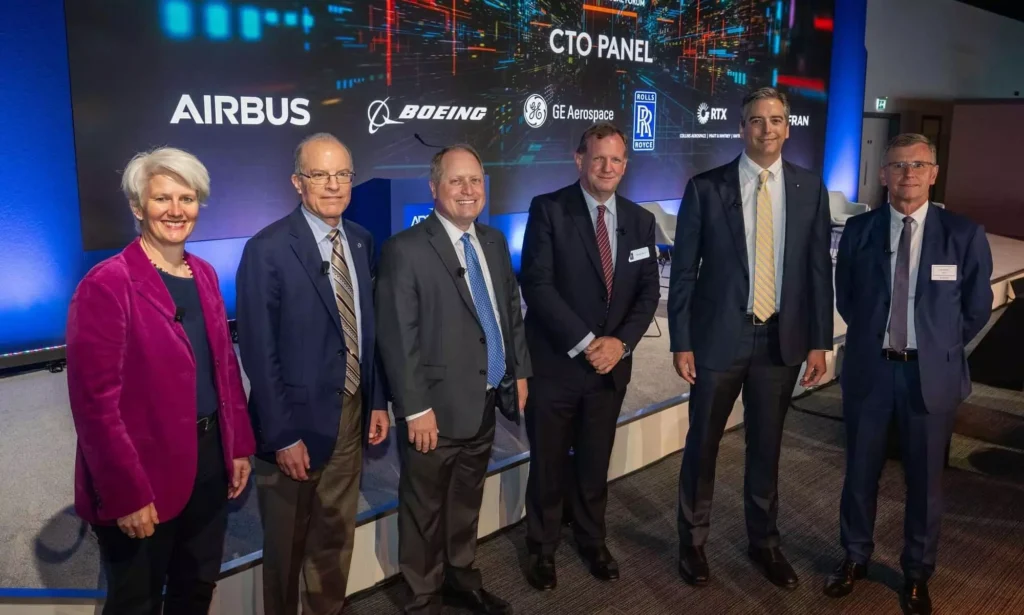The chief technology officers from Boeing, Airbus, Dassault, GE Aerospace, Rolls-Royce, RTX and Safran called for a Government research programme to improve scientific understanding of aviation’s non-CO2 impacts, such as contrails, nitrogen oxides (NOx), sulphur, aerosols and soot.
According to a Boeing statement, the technology leaders issued a joint statement at the 2024 Farnborough International Airshow, emphasizing the importance of accelerating vital efforts to understand and reduce aviation’s non-CO2 impacts.
“The aerospace industry is actively working with research institutes, universities and other stakeholders to improve our understanding of non-CO2 emissions. The Forum called for increased funding for the scientific research needed to underpin technology choices, operational changes and policy decisions.”
Persistent contrails, a significant part of non-carbon dioxide emissions from aircraft, are estimated to contribute to climate warming, the statement signed by all technical directors said. “Several scientific studies have attempted to quantify their climate impact, but estimates are highly uncertain due to limited understanding of the physical and chemical properties and mechanisms, and atmospheric conditions, that influence the formation and evolution of contrails.”
“Similarly, NOx emissions and their secondary reactions vary depending on engine design, operating conditions and atmospheric conditions. Research and collection of data is essential to accurately quantify the interactions and impacts of non-CO2 emissions.”
“As the aviation industry seeks to reduce the impact of non-carbon emissions, we are committed to research, flight testing and data transparency to advance these seven priorities, together with academic and government stakeholders. By effectively collaborating across industry, academia and institutional stakeholders, we can achieve meaningful progress towards a more sustainable aviation industry.”

